Related Research Articles

The 18th century lasted from 1 January 1701 to 31 December 1800 (MDCCC). During the 18th century,elements of Enlightenment thinking culminated in the Atlantic Revolutions. Revolutions began to challenge the legitimacy of monarchical and aristocratic power structures. The Industrial Revolution began during mid-century,leading to radical changes in human society and the environment. The European colonization of the Americas and other parts of the world intensified and associated mass migrations of people grew in size as part of the Age of Sail. During the century,slave trading expanded across the shores of the Atlantic Ocean,while declining in Russia and China.

Benjamin Chew was an American lawyer and judge who served as the chief justice of the Supreme Court of the Province of Pennsylvania and later the Commonwealth of Pennsylvania. Born into a Quaker family,Chew was known for precision and brevity in his legal arguments and his excellent memory,judgment,and knowledge of statutory law. His primary allegiance was to the supremacy of law and the constitution.

John Penn was an English-born colonial administrator who served as the last governor of colonial Pennsylvania,serving in that office from 1763 to 1771 and from 1773 to 1776. Educated in Britain and Switzerland,he was also one of the Penn family proprietors of the Province of Pennsylvania from 1771 until 1776,holding a one-fourth share,when the creation of the independent Commonwealth of Pennsylvania during the American Revolution removed the Penn family from power.
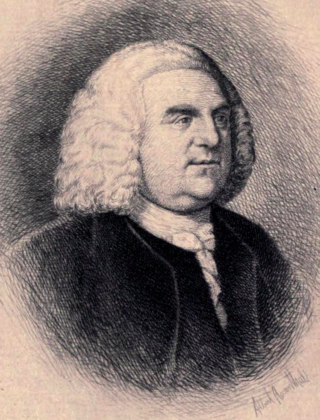
William Allen was a wealthy merchant,attorney and chief justice of the Province of Pennsylvania,and mayor of Philadelphia during the colonial era. At the time of the American Revolution,Allen was one of the wealthiest and most powerful men in Philadelphia. A Loyalist,Allen agreed that the colonies should seek to redress their grievances with British Parliament through constitutional means,and he disapproved of the movement toward independence.

Joseph Galloway was an American attorney and a leading political figure in the events immediately preceding the founding of the United States in the late 18th-century. As a staunch opponent of American independence,he would become one of the most prominent Loyalists in North America during the early part of the Revolutionary War.
This article presents a timeline of events in the history of the United Kingdom from 1700 AD until 1799 AD. For a narrative explaining the overall developments,see the related history of the British Isles.

Thomas Willing was an American merchant,politician and slave trader who served as mayor of Philadelphia and was a delegate from Pennsylvania to the Continental Congress. He also served as the first president of the Bank of North America and the First Bank of the United States. During his tenure there he became the richest man in America.
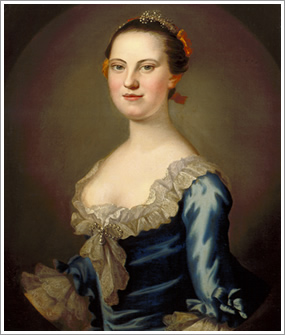
Mary Willing Byrd was an American planter. At twenty years of age,she became the step-mother of five children and managed the family and household at Westover Plantation in Charles City County,Virginia beginning her second year of marriage. Together Byrd and her husband,William Byrd III,had ten more children before he committed suicide in 1777. She determined what property to hold on to and what to sell of what she inherited so that she could pay off debts,preserve Westover Plantation,and retain some land for the Byrd children.

Richard Vaux was an American politician. He was mayor of Philadelphia and served for less than a year as a member of the U.S. House of Representatives from Pennsylvania in the early 1890s.
On February 16,1734,William Allen married Margaret Hamilton,daughter of Andrew Hamilton,famed defense lawyer in the John Peter Zenger case of 1735,and brother of James Hamilton. William and Margaret had six children:John,Andrew,James,William,Anne and Margaret. Like their father,all of Allen's sons were loyalists opposed the overthrow of British rule in the American Colonies.
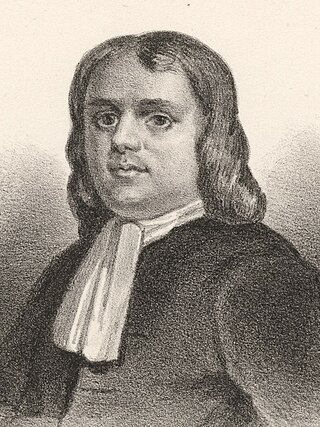
Isaac Norris was a merchant and statesman in the colonial-era Province of Pennsylvania,in British America.
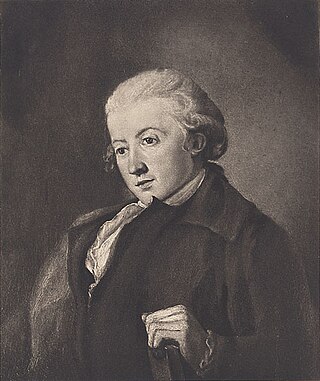
William Rawle was an American lawyer from Philadelphia,who served as United States district attorney in Pennsylvania from 1791 to 1800. He founded The Rawle Law Offices in 1798 which evolved into Rawle &Henderson,the oldest law firm in the United States. He was the first chancellor of the Philadelphia bar association and published several influential legal texts including A View of the Constitution of the United States. He was the first to argue for secession in the United States.
David Franks was a loyalist in the war of the American Revolution.
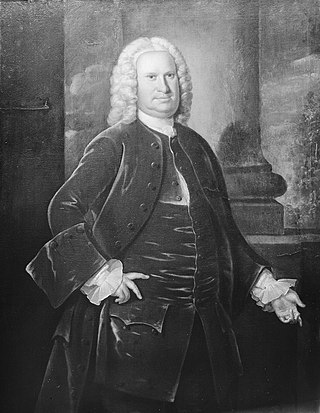
James Tilghman (1716–1793) was a prominent lawyer and public servant in colonial Maryland and Pennsylvania.
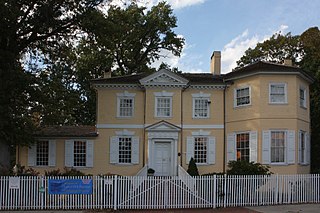
Laurel Hill Mansion, previously known as Randolph House, is a historic mansion in east Fairmount Park,Philadelphia,Pennsylvania.
Thomas Fitch V was a member of the Connecticut House of Representatives from Norwalk in the sessions of October 1761,May and October 1763,May and October 1764,May and October 1765,May and October 1766,May 1767,October 1768,May and October 1769,October 1770,October 1771,October 1772,October 1773,October 1775,and May 1776.
Francis Rawle,originally from England,was a Quaker and colonist in Philadelphia,where he served in administrative positions and was a member of the assembly.
Rebecca Warner Rawle Shoemaker (1730–1819) was an American woman whose journals provide insight into the issues of her day. She built the Randolph Mansion in Laurel Hill at a time when few women built mansions. The house continues to be occupied.
References
- 1 2 3 4 5 6 John Woolf Jordan (2004). Colonial And Revolutionary Families Of Pennsylvania. Genealogical Publishing Company. ISBN 9780806352398 . Retrieved 2020-05-15.
- 1 2 3 4 The Pennsylvania Magazine of History and Biography. 1878. Retrieved 2020-05-15.
- ↑ "APS Member History". search.amphilsoc.org. Retrieved 2021-06-04.
- ↑ Higginbotham, Don (1983) [1971]. The War of American Independence: Military Attitudes, Policies, and Practice, 1763–1789. Northeastern University Press. ISBN 0930350448.
- ↑ —— (2007). Almost a Miracle. Oxford University Press. ISBN 978-0-1997-5847-0.
- ↑ John Russell Young, ed. (1895). Memorial History of the City of Philadelphia, from Its First Settlement to Year 1895: Narrative and critical history, 1681-1895. New York History Company.
- ↑ "Laurel Hill Mansion - History Highlights". Laurel Hill Mansion. Retrieved 2020-05-15.
